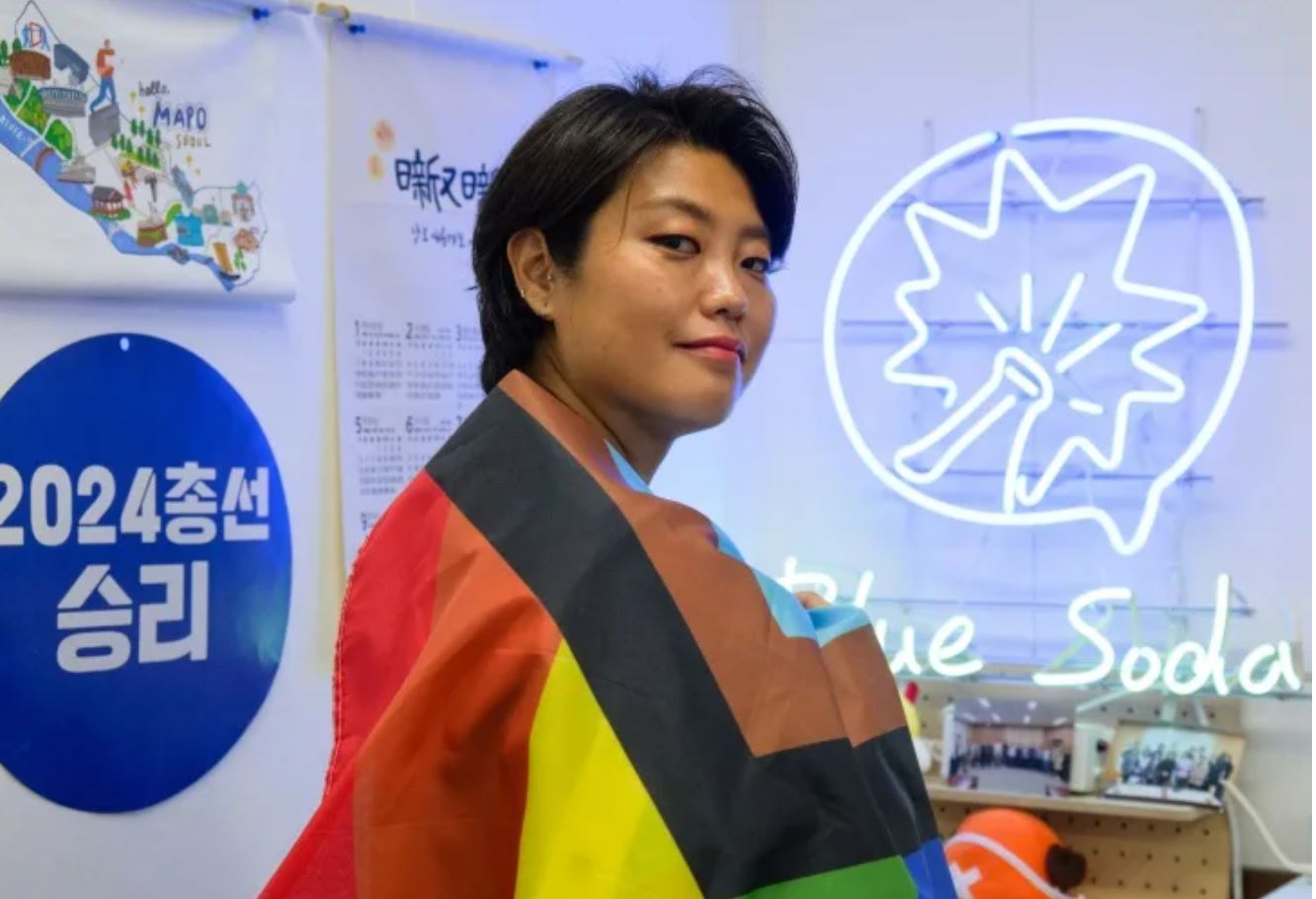‘We Exist’: South Korea’s First LGBTQ Councillor Advocates for Inclusion
South Korea’s first openly gay legislator has made a breakthrough in the ruling party, but acknowledges that much progress is still needed to achieve political inclusivity in the country.
Historic Election and Ongoing Struggles
Cha Hae-young’s election to the Mapo district council on June 1, 2022, marked a significant milestone for the LGBTQ community in South Korea. This historic event coincided with Seoul’s annual LGBTQ Pride march. However, despite this progress, the path toward inclusion remains challenging. Two years after Cha’s election, Asia’s largest queer festival faces relocation issues as city officials cite potential “social conflicts” for moving Saturday’s planned celebrations away from the capital’s central plaza.
Public Discussion and Party Dynamics
Cha recognizes the difficulty many South Koreans have in discussing sexuality and LGBTQ issues but stresses the need for more public dialogue to advance inclusivity. Even within Cha’s party, which holds a parliamentary majority, there is no clear strategy for addressing these topics with the public. “We need to show the people that we (LGBTQ people) exist,” says Cha, who uses they/them pronouns, emphasizing the importance of visibility.
Visibility and Personal Commitment
Cha has embraced their role with enthusiasm, using their office in Seoul’s Mapo district to promote LGBTQ visibility. The office, decorated with rainbow garlands and a large Pride flag, initially surprised other council members but has since become accepted. Despite the pressures of being the sole openly LGBTQ politician, Cha remains proud of their identity and is dedicated to pushing for anti-discrimination and marriage equality legislation.
Pride Festival Backlash
Seoul’s queer festival celebrates its 25th anniversary this year but faces challenges. For the second consecutive year, organizers were denied permission to hold events in central locations, with city authorities citing scheduling conflicts and potential social unrest. Festival organizers argue that this decision perpetuates inequality. Yang Sun-woo, chair of the Seoul Queer Culture Festival, criticized the city’s conservative mayor, Oh Se-hoon, for not supporting an inclusive environment, questioning if this aligns with Seoul’s goal of being a “global and leading city.”
Embracing Diversity for the Future
South Korea’s demographic challenges, including one of the world’s lowest birth rates, necessitate embracing immigration and diversity. Cha believes that increasing visibility of LGBTQ individuals is crucial for showcasing the existing diversity within South Korean society. Despite the obstacles, Cha has found a welcoming and productive political environment. A poster in their office reads, “We welcome all races, all religions, all countries of origin, all sexual orientations, all genders. We stand with you, you are safe here.”
Commitment to an Inclusive Society
Cha aims to make their party, which holds a parliamentary majority but not the presidency, more inclusive. “As the majority party, we need to move to an inclusive society, not an exclusionary one,” they assert, emphasizing that this will be their focus for the remaining two years in office. Cha acknowledges that two years is insufficient to achieve all their goals, making re-election crucial for continuing their advocacy work.













